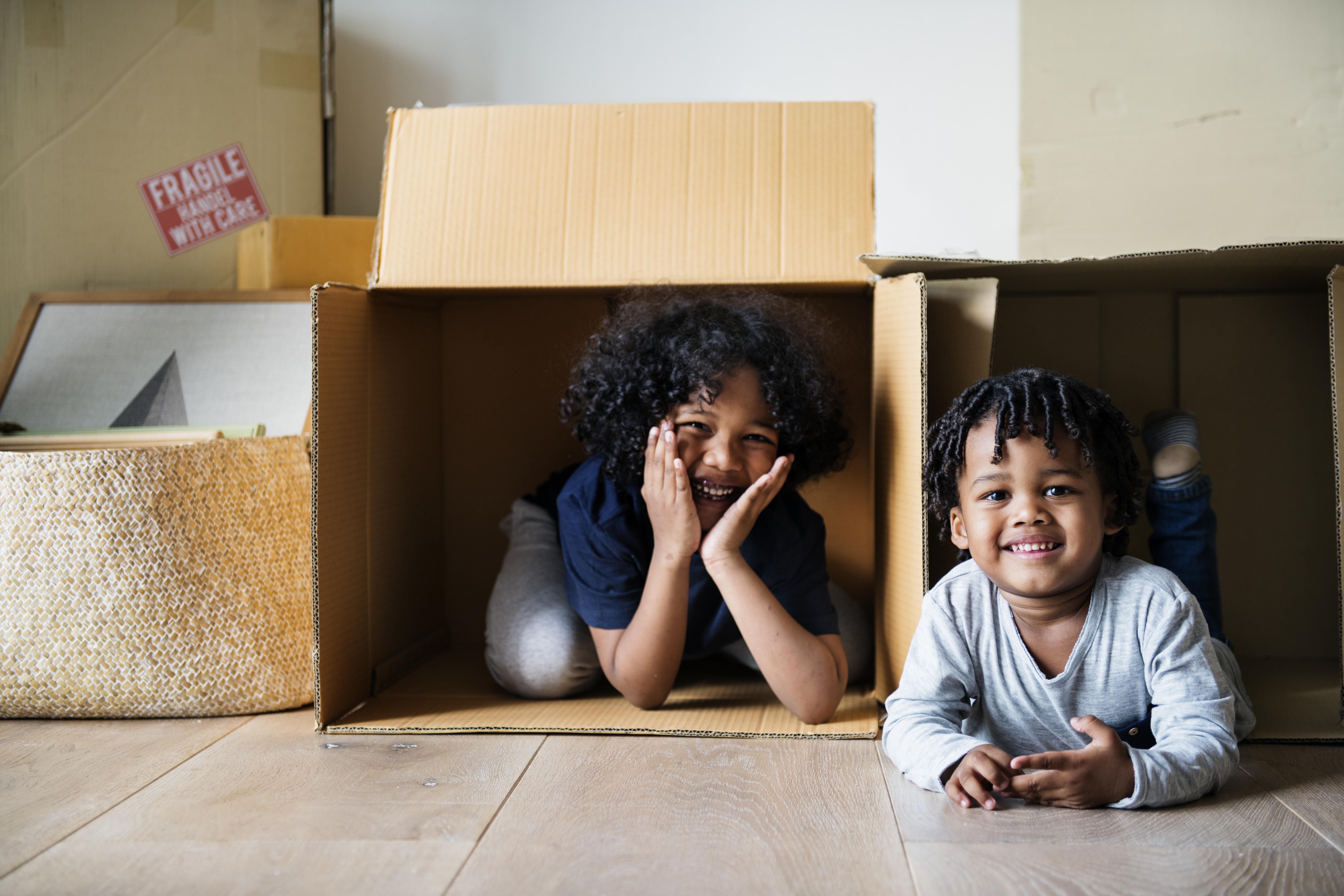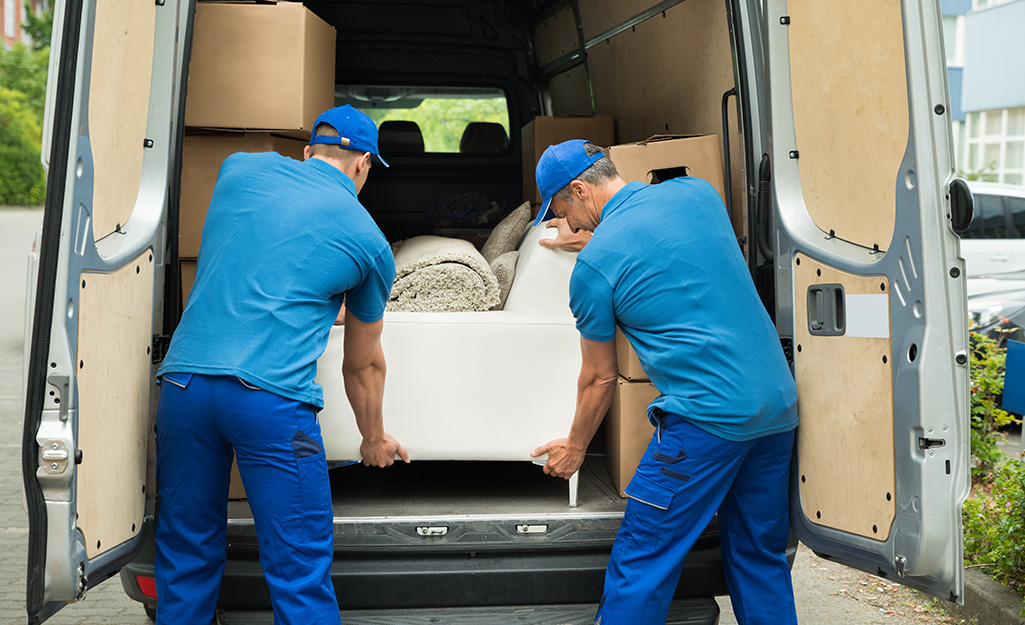
Moving to a new community is a significant change for everyone, especially children. Relocating brings many emotions—excitement, nerves, sadness, apprehension, and dozens of other feelings.
On The Move Moving and Storage takes the stress out of moving and make it an easy process for everyone! Here are some tips to make your upcoming move easier on your children.
Before the move
Talk with your children about the upcoming move
Perhaps the easiest and most important way to prepare children for an impending move is to talk with them. Give as much age-appropriate information as possible, and answer their questions as thoroughly and truthfully as possible.
Kids often feel scared and unsettled by an upcoming move. Small children associate home with safety, security, family, love, and feeling “grounded.” The thought of moving and potentially losing that place can be very frightening.
Most psychiatrists agree that telling children as early as possible about the upcoming move is best. Kids appreciate being part of the process early and not feeling as if they are one of the last people to know the plans.
Bring them into the decision early to reassure children that they matter. Show them pictures of the new neighborhood, schools, and the new home. Help them discover and learn about their new community by researching things to do online. This will give them specific things to look forward to, share with friends, and be excited about.
Try to tell the children in a warm, open way. It’s best not to share the news with them at a restaurant or other public place. Children of all ages need to feel free to express their emotions freely, and they may not feel confident doing this in a public place.
Don’t be surprised if children are very upset by the news. Give as much space as possible to answer their questions and allow them to express their feelings. You can allow them to feel heard while remaining firm that the decision is final. Your confidence in the decision will help them trust you and feel reassured.
Honesty is always the best policy. Don’t exaggerate to generate excitement or make promises you cannot keep. Share the advantages of moving but be realistic.
Have regular family conversations
Moving is a busy and stressful time. After the initial conversation, set a regular meeting time to catch up, share feelings, answer questions, and allow everyone to feel heard. This is particularly helpful for older children.
As the moving date gets closer, these meetings are a good time to assign tasks and update everyone on the progress. Regular get-togethers promote healthy dialogue among the whole family.
Teach problem-solving skills
Regular get-togethers or family meetings are a great time to help children problem-solve. Older children will likely express concerns about moving schools, losing friends, having to adjust to new teachers and coaches, and many other changes that come with moving. This is an excellent opportunity to involve your children in planning and preparation.
As kids share concerns and questions, help them come up with a plan of action. Whether it’s how to stay in touch with friends or how they will be able to continue playing soccer in their new community, let your children generate ideas and problem solve. Children are surprisingly creative problem-solvers given the right opportunities and resources.
Ask follow-up questions that will help them either refine their strategy or identify potential flaws. This process teaches children problem-solving skills and makes them more resilient.
Organize some keepsakes
As you begin packing up your old home, allow children to set aside a few comfort items they can keep with them. These items might not be logical, but they help remind children of normalcy.
Older children often appreciate being able to purchase or collect a few keepsakes of the community they are leaving. A new t-shirt from their local sports team or framed photo of their favorite hangout might go a long way to help them process the change and acclimate to their new neighborhood.
The Move
The days leading up to the move are likely the most stressful for everyone. Many belongings are packed and everything feels disorganized. Children of all ages are very attuned to their parents’ stress levels.
Keep as much routine as possible
Even as everything is about to change, it’s helpful to keep as much of a normal routine as possible, especially for small children. Although it’s tempting to let the routine go in the midst of moving chaos, bedtimes, nap schedules, snacks, and other day-to-day activities help calm children’s fears and communicate to them that everything is ok.
Communicate to children that the routine will stay the same at the new home. This will help small children know what to expect.
Keeping your routine may mean you pack or unpack a little slower than you would prefer but helping your child keep their nap or bedtime will make a world of difference for both of you.
Ask for help
During the packing and moving process, don’t be afraid to have a friend or babysitter come over and help with the children while you take care of the moving tasks. This can also help keep a routine for small children.
On moving day arrange for small children to have a babysitter or stay at a friends’ house. The noise, chaos, and unfamiliar people involved in moving can be very stressful for small children.
After everything is packed and cleaned, allow children of all ages to walk through the empty house. Take time as a family to recall and celebrate special memories you created in your home. Walk small children from room to room and help them say goodbye to the house. This gives children a sense of closure and freedom to move emotionally to the new home.
Leave your child’s things until last
Avoid packing up young children’s bedrooms until absolutely necessary. The bedroom will act as a sanctuary in the midst of moving chaos for your child and help them feel safe.
Involve your children in the packing and moving process. Allowing them to help pack toys or other appropriate items lets them feel included. Teens will appreciate being responsible for packing their own belongings.
If it is age-appropriate, allow children to mark their boxes however they would like. Small children might like to color on the outside of their moving boxes. Older children might want to write their names on the boxes or mark them in a special way.
Last on, first off
If it is possible, put your children’s boxes into the moving truck or container last so they are among the first items to come off the truck. Even though you might be dying to unpack the kitchen or set up the living room, take the time to unpack your children’s items as early in the process as possible.
Make a big deal about unpacking and setting up their new room. You might not unpack all their boxes, but setting up their bed and unpacking a few boxes of toys will give them a sense of familiarity and security in their new surroundings.
After the move
It is important to return to the familiar routines as quickly as possible in your new home. Even though unpacking is an overwhelming task, consistency and routine are helpful for you and your children.
Don’t make unnecessary or unwanted changes
Older children and teenagers might relish a new bed or desk for their new room. Be sure to have a conversation about the change and involve them in the whole process.
Young children often find a sense of security in the familiar. If at all possible, avoid replacing or upgrading their furniture, toys, or other items in their room. This will build a sense of familiarity in their new home and allow them to adjust more quickly.
Safety in your new home
Because everything is new, your children will want to explore their surroundings with as many of their senses as possible—touch, smell, sight, and sound. This is a healthy process but it requires a little extra work and attentiveness on your part. If you have very young children, baby-proof the new house before your children arrive.
If possible, take young children to a park or play area while the furniture is set up and big items are being unpacked.
One tactic to keep children out of rooms you are unpacking is to make each room a surprise. Keep them out and tell them it is a surprise. Then, when everything is assembled and set up, let the children discover and explore the room. This tactic also creates a sense of excitement in the new home.
Don’t stack boxes too high or precariously in case your children bump or push on them. Be sure to keep scissors, tape, box-cutters, and other dangerous items out of reach.
Is moving good for children?
Whether across town or to another state, moving is stressful but can have many positive impacts on children of all ages.
A move is an excellent opportunity to empower children of all ages to make decisions and participate in a process that involves more than them. Moving can teach problem-solving, planning, teamwork, and being considerate of other people.
Moving helps children learn to process and adapt to change. This is an important life skill for anyone.
Moving helps children learn to process big emotions. Kids of all ages experience many feelings during a move. This is an opportunity to validate their emotions and teach them how to handle emotions healthily. By normalizing big emotions and equipping your child to process and move forward, you help your child build self-esteem and emotional stability.






